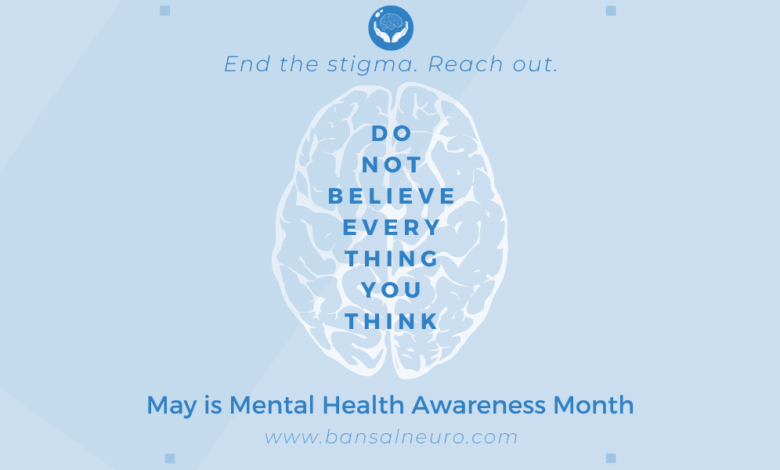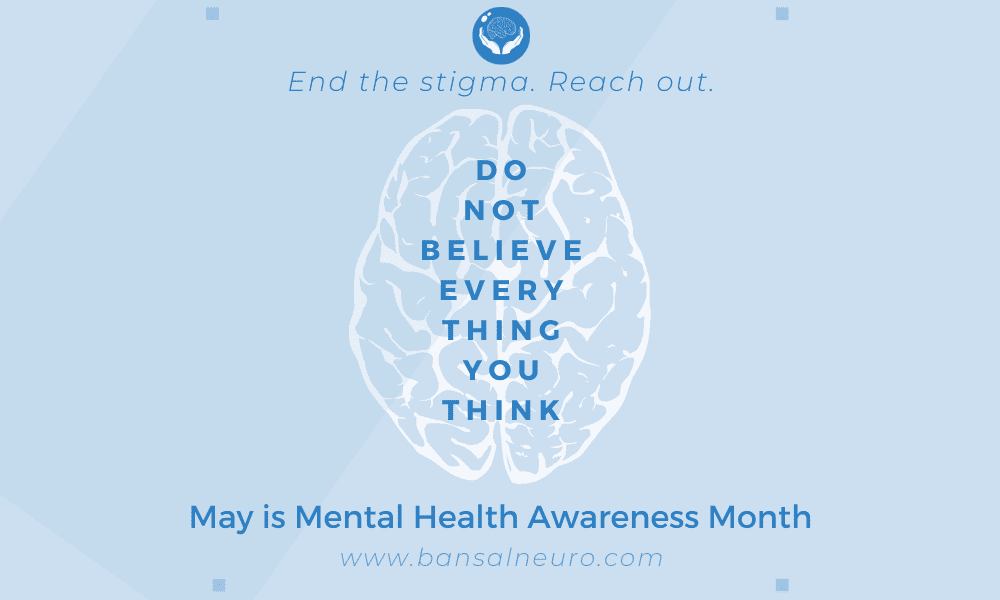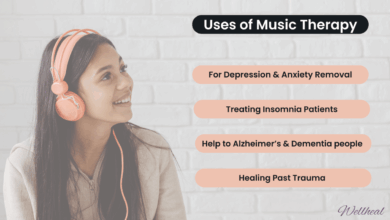
Mental health awareness forgotten – a pervasive issue impacting individuals, families, and communities worldwide. This oversight stems from various factors, including societal stigmas, a lack of understanding, and insufficient resources. The consequences of neglecting mental health awareness are far-reaching, affecting education, employment, relationships, and overall well-being. This exploration delves into the historical context of mental health awareness campaigns, examining their evolution and the barriers that hinder progress.
We’ll examine how mental health awareness has been forgotten in different settings – from schools and workplaces to communities. Factors contributing to this oversight include societal biases, misinformation, and the prioritization of other concerns. Understanding these contributing factors is crucial to creating a more supportive and inclusive environment for everyone.
Understanding the Concept of Forgotten Mental Health Awareness

The concept of “forgotten mental health awareness” highlights the often-overlooked and underappreciated nature of mental well-being in various aspects of life. It recognizes that while physical health receives considerable attention and resources, mental health frequently falls behind, leading to a lack of proactive support and understanding. This neglect manifests in numerous ways, from societal stigmas to insufficient resources in communities and workplaces.
Addressing this “forgetting” is crucial for fostering a healthier and more supportive environment for everyone.This “forgetting” isn’t a conscious act of ignoring mental health, but rather a complex interplay of societal factors, ingrained beliefs, and practical challenges. Understanding these factors is key to developing effective strategies for promoting mental health awareness and support. The consequences of this neglect can be far-reaching, impacting individuals’ well-being, productivity, and overall societal health.
Defining Forgotten Mental Health Awareness
Forgotten mental health awareness refers to the situation where the importance of mental well-being is not adequately recognized or prioritized in various settings. This can manifest as a lack of resources, support systems, or educational programs dedicated to mental health, or a pervasive societal stigma that discourages open discussions and seeking help. It signifies a gap in acknowledging the equal significance of mental health alongside physical health.
Examples of Forgotten Mental Health Awareness
Mental health awareness can be overlooked in many settings. In schools, the focus might primarily be on academic achievement, leaving emotional well-being as an afterthought. In communities, mental health services might be limited or inaccessible, and social support systems may not adequately address mental health needs. In workplaces, pressures to perform and maintain a positive image can lead to individuals suppressing their mental health concerns, creating a culture of silence and neglect.
Factors Contributing to Forgotten Mental Health Awareness
Several factors contribute to the perception of “forgotten” mental health awareness. Societal stigmas surrounding mental illness often discourage individuals from seeking help or discussing their struggles, leading to a sense of isolation and shame. A lack of readily available resources and support systems in communities and workplaces also plays a significant role. The perceived cost and difficulty of addressing mental health issues can make it challenging for institutions to prioritize these concerns.
Furthermore, the absence of comprehensive mental health education in schools and workplaces contributes to the lack of awareness and understanding.
Reasons for Not Prioritizing Mental Health
Individuals may not prioritize mental health due to a variety of reasons. Fear of judgment or stigma can prevent them from seeking help or discussing their struggles. Lack of awareness about available resources or the benefits of mental health support can also contribute. The belief that mental health issues are a sign of weakness or personal failure can lead to avoidance and self-stigmatization.
In addition, time constraints and perceived lack of support from loved ones may discourage individuals from prioritizing their mental well-being.
It’s easy to get swept up in the Super Bowl frenzy, but sometimes, important things like mental health awareness get forgotten. We’re so focused on the game and the delicious (but often unhealthy) food, like those over-the-top Super Bowl feasts, that we often overlook the toll it can take on our well-being. Consider how unhealthy pig out during super bowl can lead to feelings of guilt, regret, and even a short-term dip in mood.
This isn’t to say that enjoying a little indulgence is bad, but perhaps it’s a reminder to check in with ourselves and prioritize our mental health, especially during stressful events like the Super Bowl. how unhealthy pig out during super bowl. Ultimately, we should always remember to be mindful of our mental well-being, regardless of the occasion.
Impact of Societal Stigmas on Mental Health Awareness
Societal stigmas surrounding mental illness have a significant impact on mental health awareness. These stigmas create an environment where individuals may be afraid to seek help or discuss their struggles, leading to feelings of isolation and shame. This fear of judgment can hinder the development of supportive communities and prevent individuals from receiving necessary care and treatment. The impact is pervasive, influencing individuals’ decisions, interactions, and access to resources.
Structured Table of Forgotten Mental Health Awareness
| Category | Description | Examples | Impact |
|---|---|---|---|
| Societal Stigma | Negative perceptions and beliefs surrounding mental illness, creating a barrier to seeking help. | Discrimination, prejudice, and fear of judgment. | Reduced help-seeking behavior, feelings of shame and isolation, and limited access to care. |
| Lack of Resources | Limited access to mental health services, support groups, and educational programs. | Inadequate funding for mental health services, lack of qualified professionals in underserved areas. | Delayed or absent treatment, increased suffering, and a lack of coping mechanisms. |
| Insufficient Education | Limited or absent mental health education in schools and workplaces. | Lack of awareness about mental health conditions, symptoms, and available resources. | Misunderstanding of mental health, perpetuation of stigma, and reduced ability to support oneself or others. |
| Prioritization Issues | Mental health concerns are often placed below other priorities, such as academics, work, or finances. | Limited time for self-care, pressure to maintain a perfect image, or difficulty balancing multiple responsibilities. | Increased stress, burnout, and a lack of proactive well-being measures. |
Historical Context and Trends
The journey towards recognizing and addressing mental health has been a gradual, yet significant, evolution. From being largely stigmatized and misunderstood, mental health is increasingly gaining the attention and resources it deserves. This evolution is deeply intertwined with societal shifts, technological advancements, and growing awareness of the importance of mental well-being. Understanding this historical context provides valuable insights into the progress made and the challenges that remain.The concept of mental illness, and the approaches to treating it, have been dramatically transformed over the decades.
Early perceptions often viewed mental health conditions as moral failings or supernatural phenomena, leading to inadequate or even harmful treatments. This contrasts sharply with the more nuanced and scientific understanding of mental health that exists today.
Historical Overview of Mental Health Awareness Campaigns
Mental health awareness campaigns have been around for decades, but their focus and impact have evolved considerably. Early efforts were often localized and focused on specific populations, like veterans returning from war. These early campaigns typically emphasized the need for treatment and care, often advocating for better institutional care and facilities.
Evolution of Awareness Over Time
The understanding of mental health has changed dramatically over time. Early approaches to mental health issues often involved institutionalization, with little emphasis on individual recovery or community support. The 20th century witnessed a gradual shift toward deinstitutionalization and a greater focus on psychosocial approaches. This transition reflects a growing understanding of the complex nature of mental health conditions and the importance of community-based care.
Comparison of Past and Present Approaches
Past approaches to mental health promotion often focused on institutional care and a more limited understanding of the causes and treatment of mental health conditions. Modern approaches emphasize prevention, early intervention, and community support, recognizing the multifaceted nature of mental health and the importance of social and environmental factors. The rise of evidence-based therapies and the integration of mental health into primary care are key advancements in this evolution.
It’s easy to get caught up in the daily grind, sometimes pushing mental health awareness to the back burner. We’re so focused on staying healthy physically, like following the viral nurse’s advice on viral nurse things you can do to avoid flu , that we forget the importance of looking after our minds. But mental well-being is just as crucial as physical health, and we shouldn’t let it slip through the cracks.
Key Turning Points in Mental Health Awareness
Several events and movements have been crucial in raising mental health awareness. The deinstitutionalization movement, the rise of self-help groups, and the growing acceptance of mental health conditions as medical illnesses have all played a role in transforming how society perceives and addresses mental health. The increased recognition of the role of social factors in mental health is another turning point, highlighting the need for broader societal changes to support mental well-being.
Influence of Societal Changes on Mental Health Awareness
Societal changes have significantly influenced the evolution of mental health awareness. For example, the increasing acceptance of diversity and inclusion has fostered a greater understanding of mental health issues across various communities. The growing emphasis on social justice and human rights has also brought attention to the mental health needs of marginalized groups. These societal shifts create an environment where mental health is viewed as a critical component of overall well-being.
Timeline of Mental Health Awareness
| Year | Event/Trend |
|---|---|
| 2000 | Early mental health campaigns, often focused on specific populations or institutional care. |
| 2010 | Increased focus on mental health, deinstitutionalization and community-based care, rise of self-help groups. |
| 2020 | Impact of social media, increased public conversation about mental health, rise of digital mental health resources. |
Barriers to Mental Health Awareness: Mental Health Awareness Forgotten
Navigating the complexities of mental health awareness requires understanding the obstacles that hinder progress. These barriers are deeply ingrained in societal structures, cultural norms, and individual perceptions. Addressing these challenges is crucial for fostering a supportive environment where individuals feel comfortable seeking help and support for their mental well-being.Understanding these obstacles is not just an academic exercise; it’s a crucial step toward dismantling systemic barriers and fostering a culture of empathy and understanding.
By recognizing and analyzing these hurdles, we can develop more effective strategies to promote mental health awareness and ultimately improve the lives of those struggling with mental health conditions.
Cultural Norms and Beliefs
Cultural norms and deeply held beliefs often shape perceptions of mental illness. In some cultures, seeking professional help for mental health issues is stigmatized, viewed as a sign of weakness, or considered taboo. These ingrained beliefs can prevent individuals from seeking necessary support and treatment, perpetuating cycles of suffering. For example, in certain communities, expressing emotional distress openly may be discouraged, leading individuals to internalize their struggles and avoid seeking help.
- Societal expectations can restrict the expression of emotions, leading to a suppression of symptoms and a delay in seeking help.
- Fear of judgment or social isolation can prevent individuals from discussing their struggles with others, including family members and friends.
- Cultural narratives that portray mental illness negatively contribute to the stigma associated with these conditions.
Misinformation and Prejudice
Misinformation and prejudice play a significant role in hindering mental health awareness. Inaccurate or misleading information about mental health conditions can reinforce negative stereotypes and perpetuate stigma. This misinformation often leads to fear, misunderstanding, and discrimination. For example, the portrayal of individuals with mental illnesses in the media can perpetuate harmful stereotypes, further marginalizing those who are struggling.
Such misrepresentations can lead to prejudice and discrimination, making it even harder for individuals to seek help.
- Lack of accurate information can lead to fear and misconceptions about mental health conditions.
- Negative stereotypes and prejudices often fuel discrimination and marginalization of individuals with mental health challenges.
- The spread of misinformation through social media and other online platforms can contribute to the perpetuation of harmful stereotypes.
Lack of Action or Support
The lack of action or support for mental health issues stems from a combination of factors, including limited resources, inadequate policies, and a lack of awareness among policymakers and the general public. This often translates into insufficient funding for mental health services, resulting in long wait times and limited access to treatment.
- Inadequate funding for mental health services often leads to limited access to treatment, long wait times, and understaffed facilities.
- Insufficient training for healthcare professionals can result in a lack of proper diagnosis and treatment for mental health conditions.
- A lack of mental health awareness campaigns can contribute to the general public’s lack of understanding and empathy for those struggling with mental health challenges.
Flowchart for Overcoming Barriers
Start --> [Identify barrier] --> [Analyze impact] --> [Develop solution] --> [Implement solution] --> End
The flowchart above illustrates a structured approach to overcoming barriers to mental health awareness. The process begins with identifying the specific barrier, analyzing its impact on individuals and communities, developing targeted solutions, and finally, implementing these solutions to promote positive change. This iterative process requires ongoing evaluation and adaptation to ensure that interventions are effective and sustainable.
Strategies for Improved Mental Health Awareness
Raising awareness about mental health is crucial for fostering a supportive and understanding society. Ignoring mental health issues perpetuates stigma and hinders individuals from seeking help when they need it. By implementing effective strategies, we can create a culture of openness and compassion, encouraging individuals to prioritize their mental well-being.
Understanding the multifaceted nature of mental health challenges is paramount to developing effective strategies for raising awareness. Mental health encompasses a broad spectrum of conditions, from anxiety and depression to more complex disorders. This necessitates diverse approaches to reach various communities and address specific needs.
It’s so frustrating how mental health awareness often gets sidelined, especially when other pressing issues like the recent discovery of a new swine flu in pigs in China here take center stage. While the health of animals is vital, we shouldn’t forget the crucial importance of prioritizing our mental well-being. It’s time we recognize that mental health deserves the same attention and resources as other critical areas of public health.
Successful Strategies for Raising Awareness
Effective mental health awareness campaigns often employ a multi-pronged approach. These campaigns must be targeted and tailored to resonate with different demographics. A crucial element is emphasizing the importance of early intervention and the availability of resources. Building trust and fostering open dialogue is vital. The goal is not just to increase knowledge but to shift perceptions and challenge harmful stereotypes.
- Public Awareness Campaigns: These campaigns can use various media platforms, including social media, print advertisements, and public service announcements. These campaigns should feature real stories and testimonials from individuals who have experienced mental health challenges. Examples include using compelling visuals, catchy slogans, and incorporating interactive elements to capture attention and encourage engagement.
- Educational Programs: Schools, workplaces, and community centers can offer workshops, seminars, and training programs to educate people about mental health conditions, available resources, and stigma reduction strategies. Educational materials should be accessible and culturally sensitive to ensure maximum impact.
- Community Engagement: Encouraging community involvement is essential to fostering a culture of support and understanding. Organize events, such as awareness walks, fundraising activities, and information fairs, to increase visibility and encourage participation.
Combating Stigma and Promoting Help-Seeking Behaviors
Addressing the stigma surrounding mental health is a key component of fostering a supportive environment. Stigma often prevents individuals from seeking help, leading to delayed treatment and worsening symptoms. Open conversations, dispelling myths, and highlighting the experiences of those who have sought help are crucial.
- Promoting Open Dialogue: Encourage open conversations about mental health in schools, workplaces, and communities. Creating safe spaces for individuals to share their experiences can reduce feelings of isolation and shame.
- Challenging Stigmatizing Language: Educate individuals on how to use appropriate language when discussing mental health. Avoid using demeaning or judgmental terms, and instead focus on the person, not their condition.
- Highlighting Success Stories: Sharing success stories of individuals who have sought help and achieved recovery can demonstrate the effectiveness of treatment and reduce stigma. Showcasing successful recovery journeys can help destigmatize mental illness and inspire others to seek help.
Importance of Community Engagement and Support
Strong community engagement plays a vital role in promoting mental health awareness and support. Community-based programs can offer crucial resources and support networks. By building a sense of belonging, communities can help individuals feel empowered to prioritize their well-being.
- Support Groups: Establish peer support groups that provide a safe and supportive environment for individuals with mental health challenges to connect with others who understand their experiences. Support groups can be facilitated by trained professionals or peer leaders.
- Community Centers: Community centers can host workshops, events, and support groups that foster mental health awareness and promote coping mechanisms.
- Volunteer Programs: Encourage volunteer programs that provide assistance to individuals experiencing mental health challenges. Volunteers can provide emotional support, practical help, and a sense of connection.
Technology in Mental Health Awareness
Technology offers innovative avenues for raising mental health awareness and promoting help-seeking behaviors. Online resources, mobile apps, and social media platforms can reach a wider audience.
- Online Resources: Create easily accessible websites and online platforms with information about mental health conditions, resources, and support services. These resources can include educational materials, interactive tools, and forums for support.
- Mobile Apps: Develop and promote mental health apps that provide coping strategies, mindfulness exercises, and access to mental health professionals. Apps can offer personalized support and track progress over time.
- Social Media Campaigns: Use social media platforms to raise awareness, share educational content, and promote mental health resources. This approach can be highly effective in reaching a large audience and fostering conversations about mental health.
Different Approaches to Mental Health Awareness
| Approach | Description | Target Audience | Expected Outcome |
|---|---|---|---|
| Public Awareness Campaigns | Utilizing various media platforms to spread awareness and information about mental health | General public | Increased knowledge and understanding of mental health |
| Educational Programs | Workshops, seminars, and training programs to educate individuals about mental health | Specific groups like students, employees | Improved knowledge, skills, and attitudes towards mental health |
| Community Support Groups | Facilitated support groups for individuals facing mental health challenges | Individuals experiencing mental health challenges | Reduced isolation, improved coping skills, and a sense of community |
Consequences of Forgotten Mental Health Awareness

Ignoring mental health awareness has far-reaching and devastating consequences, impacting individuals, families, and communities in profound ways. This neglect translates into a significant economic and societal burden, hindering overall well-being and perpetuating cycles of suffering. The consequences extend into various spheres of life, including education, employment, and relationships.
The failure to prioritize mental health awareness fosters a climate where individuals struggling with mental health conditions are often misunderstood, stigmatized, and left unsupported. This lack of understanding leads to a range of negative outcomes, from increased isolation and despair to a decreased quality of life.
Negative Effects on Individuals
The absence of mental health awareness creates a hostile environment for individuals experiencing mental health challenges. They may face significant emotional distress, isolation, and difficulty accessing appropriate support. This can lead to worsening symptoms, reduced functionality, and a compromised ability to cope with daily life. Without early intervention and support, mental health conditions can escalate, potentially resulting in severe consequences.
Furthermore, individuals may experience discrimination and prejudice, which can exacerbate feelings of shame and inadequacy. Early detection and intervention are crucial for mitigating the severity of mental health conditions.
Impact on Families
Mental health challenges affect not only the individual but also the entire family unit. The stress and strain on family members can be considerable, leading to strained relationships, communication breakdowns, and increased conflict. Families may struggle to provide adequate support and understanding, often feeling overwhelmed and uncertain about how to best navigate the situation. The lack of resources and support systems can further complicate the challenges faced by families.
Consequences for Communities
Communities that neglect mental health awareness often see a rise in social problems. This includes increased crime rates, homelessness, and substance abuse. Mental health conditions can contribute to decreased productivity and participation in community activities, impacting the overall well-being and progress of the community. Ignoring mental health awareness can lead to a vicious cycle, where lack of support exacerbates existing problems and hinders community development.
Economic Burden
The lack of mental health awareness and resources carries a significant economic burden on society. Untreated mental health conditions can lead to lost productivity, increased healthcare costs, and diminished economic output. The absence of early intervention and treatment can result in more severe conditions that require costly long-term care. This ultimately impacts the overall economic well-being of individuals and communities.
Impact on Education, Employment, and Relationships
The absence of mental health awareness can negatively impact education, employment, and relationships. Students experiencing mental health challenges may struggle to focus in class, resulting in lower academic performance. Similarly, employees with mental health conditions may experience reduced productivity and increased absenteeism. In relationships, individuals may experience difficulties in communication, trust, and empathy. Lack of understanding and support can lead to isolation and strained relationships.
Real-World Case Studies, Mental health awareness forgotten
Numerous case studies illustrate the devastating consequences of neglecting mental health awareness. For example, individuals who experience severe depression without access to appropriate treatment may face homelessness or suicidal ideation. Similarly, individuals who experience anxiety may have difficulty maintaining employment and relationships. Such cases highlight the critical need for increased mental health awareness and support systems.
Ultimate Conclusion
In conclusion, forgotten mental health awareness creates a cascade of negative consequences, impacting individuals, families, and communities. Addressing this issue requires a multifaceted approach encompassing increased awareness campaigns, dismantling societal stigmas, and providing readily available resources. By recognizing the historical context, understanding the barriers, and implementing effective strategies, we can move towards a future where mental health is prioritized and championed.
The path to better mental health awareness begins with understanding the scope of the problem, and this exploration provides a crucial first step.





